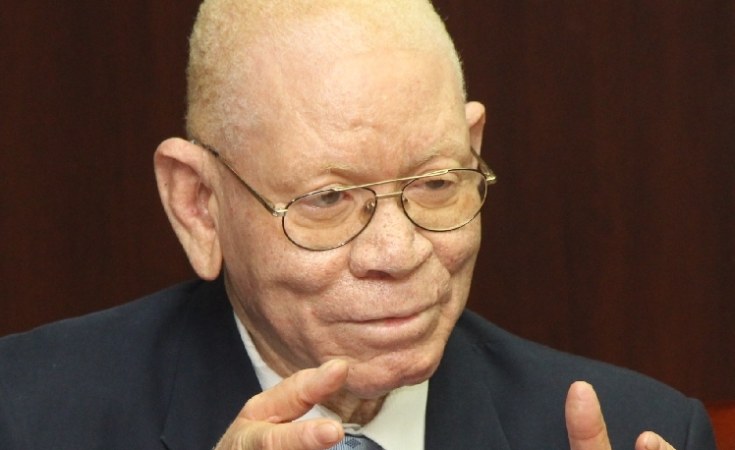Congress papers
BIEN 2022, Brisbane
BIEN 2021, Glasgow
Videos of all plenary sessions are available on youtube. Abstracts of all the concurrent sessions will be published as soon as available.
| R Huss, L Fouksman, AM Köylüoğlu, J Linares, SJ Regehr, A Miller | How has the Covid-19 pandemic affected policy-making and policy-discourse around UBI? Findings of a global survey |
| R Huss | UBI and UBS for Health – Adversaries or Allies? |
BIEN 2019, Hyderabad
Videos of all the plenary sessions are available on youtube. Abstracts of all the concurrent sessions are available here. Full papers and slides of some presentations are available below.
BIEN 2018, Tampere
Papers and presentations from the 2018 BIEN Congress in Tampere, Finland are available below.
Videos of the plenary sessions are viewable on YouTube.
BIEN 2017, Lisbon
This table contains the papers uploaded to the congress website prior to the congress. If other authors submit their papers then they will be added to this list.
Videos are available of many of the congress sessions. Click here to see them.
BIEN 2016, Seoul
The Proceedings of the 2016 congress are contained in a single document, in which can be found plenary session addresses and parallel session papers. Click here to download the document.
BIEN 2014, Montréal
BIEN 2012, Munich
BIEN2010, São Paulo
| Author | |
| Borja Barragué | |
| Michèle Billoré | |
| Gianluca Busilacchi |
BIEN 2008, Dublin
BIEN 2006, Cape Town
BIEN 2004, Barcelona
BIEN 2002, Geneva
BIEN 2000, Berlin
BIEN 1998, Amsterdam
| Name | Paper |
| Andersson, Jan-Otto (SUO) | The History of an Idea: Why did Basic Income Thrill the Finns, but not the Swedes? (published in Basic Income on the Agenda) |
| Balfour, Christopher (UK) | Selling Basic Income to UK Conservatives |
| Borovali, Murat (UK) | Self-Ownership, Private Property, and Unconditional Income: A Variation on the Georgist Theme |
| Chapman, David (UK) | Reforming the tax and benefit system to reduce unemployment |
| Chiappero, E. (IT), with M. Serati & F. Silva | Basic income: an insidious trap or a fruitful chance for the Italian labour market? |
| Christensen, Erik (DK) | An analysis of the Danish political debate on Citizen’s Income in the period 1977-97 |
| Clark, Charles (US), with Catherine Kavanagh | Answering the Economic Questions and Objections to a Basic Income |
| Cunliffe, John (UK), with Guido Erreyghers | Basic Endowments and Basic Income: Some Belgian Precursors |
| De Beer, Paul (NL) | In search of the double-edged sword (published in Basic Income on the Agenda) |
| De Beer, Paul (NL), with Loek Groot | Why launch a basic income experiment? |
| De Wispelaere, Jurgen (B) | Job Rights, Reciprocity, and the Constitutional Approach to Basic Income |
| Duboin, Marie-Louise (F) | The Civic Contract: a first step to a distributive economy |
| Erreygers, Guido (B), with John Cunliffe | Basic Endowments and Basic Income: Some Belgian Precursors |
| Ferge, Zsuzsa (H) | Basic Income for the Poorer Part of Europe? |
| Fitzpatrick, Tony (UK) | Into an Era of Post-Social Security: Globalisation and State Pluralism |
| Gamel, Claude (FR) | The use of employment rents for the financing of basic income |
| Gortemaker, Philip (NL) | Basic income, a matter of the heart |
| Healy, Sean (IRE), with Brigid Reynolds | From Concept to Green Paper: Putting Basic Income on the Political Agenda (published in Basic Income on the Agenda) |
| Hemerijck, Anton (NL) | Prospects for Effective Social Citizenship in an Age of Structural Inactivity (published in Basic Income on the Agenda) |
| Howard, Michael (US) | Basic Income and Cooperatives |
| Hughes, Gordon (UK), with Adrian Little | New Labour, Communitarianism and the Public Sphere in the UK |
| Jerusalem, Erwin (AU) | Basic Income: How it was introduced to the political agenda in Austria |
| Kavanagh, Catherine (IRE), with Charles Clark | Answering the Economic Questions and Objections to a Basic Income |
| Lehmann, Mary (US) | Opposing Globalization Could Justify Resource-Based Basic Income |
| Lerner, Sally (CA) | Fear of freedom: a barrier to putting BI on the political agenda |
| Little, Adrian (UK), with Hughes Gordon | New Labour, Communitarianism and the Public Sphere in the UK |
| Loftager, Jørn (DK) | Solidarity and Universality in the Danish Welfare State |
| Lunde, Thomas (CA) | The Family Basic Income Proposal |
| Manning, Lowell (NZ) | The Economic Effects of Introducing a Full Universal Basic Income into the New Zealand Economy |
| Metz, Paul (NL) | The daughter of Karl Marx en Adam Smith |
| Mitschke, Joachim (D) | Pleading for a Negative Income Tax (published in Basic Income on the Agenda) |
| Morier-Genoud, Jean (SWI) | Toward a renovation of economic circulation and institutionsMorley-Fletcher, Edwin (IT) Opening AddressOzanira da Silva e Silva, Maria (BRA) The Minimum Income as a Policy for Increasing Child Education in BrazilPelzer, Helmut (GE) Funding of an Unconditional Basic Income in Germany via a Modified Tax/Transfer SystemPioch, Roswitha (GE) The bottom line of the welfare state in Germany and the NetherlandsQuilley, Steven (UK) Sustainable Funding of Basic Income: Environment, Citizenship & Community, and a Trajectory for Basic Income Politics in Europe (published in Basic Income on the Agenda) |
| Reynolds, Brigid (IRE), with Sean Healy | From Concept to Green Paper: Putting Basic Income on the Political Agenda (published in Basic Income on the Agenda) |
| Robeyns, Ingrid (B) | An emancipation fee or hush money? The advantages and disadvantages of a basic income for women’s emancipation and well-being (published in Basic Income on the Agenda) |
| Roos, Nikolas (NL) | Basic Income and the justice of taxationSalinas, Claudio Caesar (ARG), with Philippe Van Parijs Basic income and its cognates. Puzzling equivalence and unheeded differences between alternative ways of addressing the new social question (published in Basic Income on the Agenda) Scharpf, Fritz (D) Basic Income and Social Europe (published in Basic Income on the Agenda) |
| Schutz, Robert (US) | More Basic IncomeSerati, M. (IT), with E. Chiappero & F. Silva Basic income: an insidious trap or a fruitful chance for the Italian labour market?Silva, F. (IT) ), with E. Chiappero & M. Serati Basic income: an insidious trap or a fruitful chance for the Italian labour market?Smith, Jeffery (US) From Potlatch to EarthshareStanding, Guy (SWI) Seeking Equality of Security in the Era of GlobalisationTerraz, Isabelle Redistributive Impact of a Basic Income: A Focus on Women’s SituationVan Parijs, Philippe (B), with Claudio Caesar Salinas Basic income and its cognates. Puzzling equivalence and unheeded differences between alternative ways of addressing the new social question (published in Basic Income on the Agenda) Widerquist, Karl (US) Reciprocity and the guaranteed income |
Except where otherwise noted, content on this site is licensed under the Creative Commons license CC BY NC SA.

Daniel Raventós and Julie Wark: “Covid-19 and the Need, Right Now, For a Universal Basic Income”
The pair Daniel Raventós and Julie Wark have analyzed the corona virus outbreak and consequent economic downturn and call for an immediate implementation of basic income in each country, truly a global response to a global crisis. It can be read, from the onset of the article:
Apart from the medical threat revealing a brutal class divide in healthcare, the coronavirus pandemic is creating social and economic havoc among non-rich populations. If ever the need for a universal basic income was evident, it is now. But governments, trying to save the neoliberal system, and making the most of the disaster to lay the foundations for a new round of disaster capitalism, won’t see it. To give a couple of examples of this catastrophe profiteering, laissez-faire entrepreneur par excellence, Sir Richard Branson, wants a £7.5 billion government bailout for his airline, and Trump has proposed a $700 billion stimulus package in which industries will be “stimulated” at the expense of Social Security and, once again, the poor. So much for the free market.
More information at:
Daniel Raventós and Julie Wark, “Covid-19 and the Need, Right Now, For a Universal Basic Income“, Counterpunch, March 19th 2020
The Fall and Rise of the Basic Income Movement: My personal reflections after following it for 40 years
Forty years ago today—February 7, 1980—was a small milestone for the Universal Basic Income (UBI) movement: Milton and Rose Friedman dedicated an episode of their television show to a form of basic income guarantee called the Negative Income Tax. This episode might have been the last gasp of the UBI movement’s second wave, which came very close to the centers of power in the United States and Canada in the 1960s and early 70s but had been declining for nearly a decade.

I’m a little embarrassed that this TV show and its accompanying book was my entry into the UBI movement because I disagree with the Friedmans on so many other issues now, but I have to give them credit.
Although Friedman brought his fame and Nobel-Laureate credibility to UBI and related policies, that broadcast did little to stop the decline in UBI’s popularity. It gradually vanished from mainstream politics in the United States and in most countries. It remained an idea for academics, minor parties, fringe activists for decades, only to emerge—seemingly out of nowhere—as a growing worldwide movement over the last 10 years.
So, that day wasn’t a huge milestone for the UBI movement. But it was a big day for me. It was my 15th birthday. I watched the show. I was enthralled with the idea. So, today is my 55th birthday and 40th anniversary as a UBI supporter. That’s probably a good time to write a personal account of what it’s been like following the UBI movement as it fell and rose again.
I’ve written a history of UBI’s three waves of support already both as an op-ed and as an academic article. I’m not going to repeat what I said there. This personal account is about how it felt to watch the movement fall and rise.
Movements don’t come from nowhere even if they seem to. I realize now that the groundwork for UBI’s takeoff had been building since the mid-1980s even as it receded from the mainstream political dialogue, and even as the people involved had no way to know at the time. I can’t take any credit for UBI’s rise, but I followed it very closely, so maybe my personal account will be useful.
Although I was a firm supporter from 1980, I couldn’t do much for the UBI movement, because there wasn’t much of one, and I had to go through high school and college. Then I bounced around between crappy, low-paid jobs for three years, before starting graduate school.
The two things I could do for UBI in that period were think and talk about it. The more I thought about it, and the more I learned about politics and economics, the stronger my support became. I began to see UBI as the centerpiece of a just society.
1980 was a depressing time to become a UBI supporter—especially in the United States. There were small waves of support for it in various places around the world during this period and an intellectual movement for UBI began growing in parts of Europe by the mid-80s, but none of that news reached me in the USA. There was no internet. I had the mainstream media, the library, and word of mouth, which was nearly useless.
I found myself arguing for an increasingly unpopular idea. As the memory of its popularity in the 60s and 70s faded, fewer and fewer people even knew what it was. Politicians like Ronald Reagan in the USA and Margaret Thatcher in the UK were slowly but successfully dismantling the welfare systems in their countries and vilifying just about everyone who qualified for benefits. People to the left-of-center were so much on the defensive that they were afraid to admit that the current welfare model needed improvement, because they were afraid any admission like that would make it more vulnerable to attack. Left-of-center people often argued that unconditionality was good in the abstract but political support for “the work ethic” was so strong that the only way to make sure benefits were adequate and safe from attack was to direct them exclusively to “the truly needy.”
The obvious weakness of this indirect argument amazes me. Almost all benefits in the USA, the UK, and many other countries, have been based on the model of separating the “truly needy” from the “undeserving poor” since their inception, but they have seldom if ever been adequate, and never free from attack.
Even some nominally left-of-center parties joined in, such as in 1996 when Bill Clinton led a bipartisan effort to “end welfare as we know it,” which basically meant reducing or eliminating benefits for the poorest children in the country because supposedly their mothers were bad people for taking care of children instead of “working.” Never mind that minimum wages weren’t enough to get single mothers or their children out of poverty, much less pay for child care. Never mind that this popular belief coincided with an equally popular belief that mothers whose husbands had money were bad people because they “worked” instead of taking care of children.
Watching things get worse for the least advantaged galvanized my opposition to conditions. Money is power. Propertylessness is powerlessness. Our society uses a judgmental, punitive system to force the least advantage to work for poverty wages. So, my support for UBI as a 31-year-old recent PhD in 1996 was as strong or stronger than it had been as a 15-year-old high school freshmen in 1980, and by now I had some of the skills I needed to work on it in the way I most wanted to—as an academic researcher. There are an infinite number of ways to contribute to a movement. So, I did what I thought I could do well.
My entry into the UBI movement began in the summer of 1996 while having breakfast the 7A Diner with Michael A. Lewis and Pam Donovan—two other recent PhDs and from the City University of New York. We’d been talking about politics a lot throughout our grad-school years. We had very different perspectives, but that day we all agreed that UBI or something like it was the most important social policy our country could introduce it right now.
Pam said, “then we have to write a paper on it.”
Pam was too busy to collaborate a paper together, but Michael and I had the time. We wrote the paper, and we have been collaborators on-and-off ever since. The feeling that I wasn’t the only one left in the world willing to work for this policy was great. It got my started writing on this issue, and I’ve been doing it ever since.
When Michael and I had a draft of a paper (that would take ten years to publish), we looked through academic journals in our fields (economics and sociology) to find people who’d written recently on the issue, and asked them for feedback. We had to search under at least a half dozen different names (guaranteed income, social dividend, etc.) because UBI had not yet emerged as the standard term. But we found about 20 people’s names and email address. We began getting to know people working on this topic.
 In 1997, while I was working at the Levy Institute of Bard College in upstate New York, Malcolm Sawyer asked if I new about the Basic Income European Network (BIEN), as it was then called. I soon learned BIEN had been holding conferences on this idea since 1986. I got online and made plans to attended the next BIEN Congress, which was in Amsterdam in 1998. I can’t describe the feeling of being in a room with of several hundred UBI supporters after 18 years feeling like I was the only one. I’ve attended every BIEN Congress since.
In 1997, while I was working at the Levy Institute of Bard College in upstate New York, Malcolm Sawyer asked if I new about the Basic Income European Network (BIEN), as it was then called. I soon learned BIEN had been holding conferences on this idea since 1986. I got online and made plans to attended the next BIEN Congress, which was in Amsterdam in 1998. I can’t describe the feeling of being in a room with of several hundred UBI supporters after 18 years feeling like I was the only one. I’ve attended every BIEN Congress since.
At the conference, I was a new PhD, just getting started, with zero publications. So, I was a little nervous when I introduced myself to the organizer, Robert van der Veen, one of the key UBI researchers whose work had helped bring this issue back into the academic dialogue a dozen years earlier.
But when I thanked him for the work he’d done organizing the conference, he looked at my name tag and said, “And thank you. It was when I got your proposal, that I knew there would be at least one good paper at this conference.”
That comment gave me confidence that I had something to contribute. I hope that helps me remember to compliment others.
I also spoke to another key researcher, the secretary of BIEN, Philippe Van Parijs. I asked him how I could get involved with the network. Because BIEN was a European organization at the time, he said they really needed Americans to organize something like BIEN in the United States. Michael and I had a mailing list of about 20 interested people. That’s a start.
 In December 1999, several people from that mailing list happened to be in New York at the same time. Six of us (Fred L. Block, Charles MA Clark, Erik Olin Wright, Pam, Michael and I met at the Kiev Diner and founded the U.S. Basic Income Guarantee Network (USBIG).
In December 1999, several people from that mailing list happened to be in New York at the same time. Six of us (Fred L. Block, Charles MA Clark, Erik Olin Wright, Pam, Michael and I met at the Kiev Diner and founded the U.S. Basic Income Guarantee Network (USBIG).
Because I was the only one who had time, they let me be coordinator and write the newsletter, eventually named the NewsFlash. That job gave me the opportunity to scour the internet for any UBI-related news I could find every two months. Sometimes it was hard to find, but I was surprised that there was always something to put in the NewsFlash. And that always put me in a good mood.
I was the editor and main writer (sometimes the only writer) of the USBIG NewsFlash for it’s first 15 years, and it became a lot of work, but it also was a great education. It was a hard and sometimes thankless job, but I learned so much about the movement, it led to writing a lot of things that weren’t thankless, like writing this article, and collaborating on various projects with Michael Howard and Jurgen De Wispelaere.

Former BIEN co-chair, Ingrid van Niekerk
From the early 2000s, I was all in with the UBI movement. I’ve attended every USBIG and BIEN and BIEN Congress since then. I’ve written as much as I could in UBI, and I volunteered for whatever I was able to do.When BIEN expanded from a “European” to an “Earth Network” in 2004, USBIG became an affiliate and several USBIG members, like Eri Noguchi, Almaz Zelleke, and me) joned the executive committe at various times. Eventually I was elected cochair along with Ingrid Van Niekerk, and later Louise Haagh.
Gradually, I became a recognizable part of the group of people working on UBI.
But the group didn’t even feel like a movement. It felt like a discussion forum. Most of the membership were academics, and even the activists didn’t have critical mass to organize many actions. Instead, they tended either to focus on policies that were steps in the direction of UBI or to write about UBI like the academics but in more accessible way.
The movement was not only small; it was greying. In the mid-2000s, Guy Standing, referred to me as one of “the young people.”
I said, “Guy, I’m like, 40 years old.”
But that was young enough to be one of the younger people at the BIEN Congress.
Now that people in their teens and twenties working harder for UBI than anyone else, it’s hard to believe that as recently as 10 or 15 years ago, we were worried about getting young people involved. The movement was still made up mostly of die-hards from the second wave of UBI support, which had subsided more than 20 years earlier. I couldn’t even count myself as an exception because I learned about at the tail end of that wave of mainstream support. Maybe the UBI movement was the a ghost of Guaranteed Income movement of the 1960s.
In retrospect, the perception that the movement would slowly die off is obviously wrong. Even though UBI was continuing to recede from the mainstream political dialogue in most countries, subtle signs that the movement was regaining strength were visible. The first national Basic Income network began in the UK in 1985. The first international conference was held in 1986 and it led to the foundation of the first international network, BIEN. Since then local, national, and international groups had been gradually appearing around Europe and around the world. Minor parties in Parliaments in various European countries and elsewhere had been gradually endorsing UBI.
Localized waves of mainstream interest in UBI came and went throughout this period in places like Denmark, the Netherlands, Canada, and South Africa. Even after these waves subsided, they left behind diehards who contributed to the growing international discussion and activism for UBI.
As USBIG’s Newsletter editor in the 2000s, I watched the subtle growth of the movement continue without really noticing that significance of its gradual acceleration. Not many other people did either. I never heard anyone saying this discussion and these actions are growing in a way that’s going to lead to a worldwide wave of UBI support that would make it a visible part of the mainstream political discussion across dozens of countries by in the 2010s.
In 2006, US two activists, Al Sheahen and Steven Shafarman got a member of U.S. Congress to submit a bill to introduce small UBI. This bill was supposed to part of a strategy to rally support and press attention to UBI. Despite a lot of lobbying efforts by Al, Steve, and a few others, only two Members of Congress signed on to support the bill; there was basically zero press attention to it and zero activism for it. No one bothered to reintroduce the bill in the 2007 Congress. And the two Members of Congress (Bob Filner and Jesse Jackson Jr.) both ended up convicted of unrelated crimes a few years later.
But things were changing. Also 2006, Enno Schmidt and about a half dozen other people put paper crowns on the heads of passerbys in a public space in Switzerland and explaining the meaning of a too-often-forgotten UBI slogan “everyone a king.” Despite my doubts that it would lead anywhere, I was delightfully shocked that someone, somewhere was doing activism for UBI.
About that time, networks in Switzerland, Germany, and Austria created the first International Basic Income Week, which has grown every year since, and now takes place on all six inhabited contents. But it took me several years even to hear about it because it had no web-presence in English.

Zephania Kameeta, Namibian Minister of Poverty Eradication and former Bishop of the Lutheran Church of Namibia
At 2006 BIEN Congress, Zephania Kameeta, slammed his fist on the podiumand said, “Words, words, words. It’s time for action.” I was thinking, “Here we go again. Someone else is going to curse the people lighting candles in the darkness and tell them that they need to stop what they’re doing and start working on his idea.” But he instantly surprised. He announced he raised enough money to start a UBI pilot project in Namibia–the first such experience since 1980, and the forerunner of dozens that are happening now.
These days I look back at 2006 as the year that the UBI reached an inflection point and started to take off, but even following the news as closely as I was, I didn’t notice until 2012.
Before then, the news and research about UBI was small enough that I had time enough to read or listen to a lot of it, seemingly most of it, or at least most of the English-language stuff that seemed important to me. It was getting easier to fill the newsletter, but I felt like I had a good handle on it.
In 2011, Yannick Vanderborght, Joerg Drescher, and I got together to create Basic Income News (BIEN’s news website) as a companion to the USBIG and BIEN NewsFlashes, which had been around since 1999 and 1986 respectively.
It went smoothly for about a year, but in 2012 Yannick, Joerg, and I all noticed something was happening. Suddenly, there was so much UBI-related news, that the three of us together couldn’t keep up with it.
The three of us knew that UBI was taking off. It’s been rising ever since.
I’d finally noticed that the third wave of UBI movement was happening. And the period in which I had to wonder whether the third wave was going to be as big as the second wave was extremely brief. In about 2010, I was asked to write a chapter called “Is Basic Income Still Worth Talking About?” (not my idea for a title and my answer was yes). But by the time book came out the question already sounded dated. More UBI activity was going around the world than at any time before.
The third wave dwarfs the second wave, and it’s the first genuinely worldwide wave of UBI support. I stepped down as editor of Basic Income News, five years ago (Andre Coelho took over), but I still follow the news as much as I can.
I discussed a dozen or so sources of this rise in another article. I won’t reiterate them here.

Barb Jacobson, one of the many people who work on the European Citizens Initiative for UBI and helped turn it into UBI-Europe
Today, the wave continues to grow from multiple sources even as its most visible driver keeps shifting every couple of years. First, it was two activist-led experiments in Namibia and India. Next, it was two petition drives to get UBI on the ballot in Switzerland and the European Union. Then two campaigns together raised over a half million signatures, and the EU campaign organized in every single EU member state. Somebody took the time to ask people in Malta to gather signatures for UBI. Somebody in Malta said yes. And some people in Malta—along with 350,000 people across 18 other countries—signed.
After that, the media generated by those two initiatives inspired different kinds of activism around the world. Local, regional, national, and international groups seemed to appear everywhere.
At about the same time, the automation discussion exploded with tech industry people including some deep-pocketed and/or famous entrepreneurs, some of them used their position and resources to promote the idea. Then governments and large institutions around the world started running Basic Income experiments, sometimes in partnership with wealthy individuals or firms. So many experiments are now underway, it is hard to keep track.
Today, the most visible driver of the movement is Andrew Yang‘s campaign for U.S. Present. He’s the first major candidate to make UBI his central campaign issue. In
the 1972 US election, both major-party nominees endorsed forms of UBI, but neither of them made much of an issue of it.
Writing for the USBIG Newsflash during the 2000-2008 elections, I was unable to find any U.S. major parties’ Presidential, Gubernatorial, or Congressional candidates (aside from the two jailbirds mentioned above) even being asked about the issue. The issue was endorsed by Green Party candidates (thanks in part to Steve), and it was in alive in top-level politics in some other countries. But mainstream U.S. politicians almost always either ignored it completely or distanced themselves from that radical idea.
In the 2012 and 2016 election cycles, mainstream politicians including Bernie Sanders, Barak Obama, and Hillary Clinton started being asked about it. Instead of feeling like they had to distance themselves from the idea, they tended to say favorable things about it while trying to convince UBI supporters that the most effective way to move in that direction right now was to join them in supporting some very non-UBI policies. That kind of response indicates that they recognized that UBI movement as worth courting, and that doing so was a net benefit over any negative they might get from association with an idea that had been too radical to touch since 1972—when even George McGovern quietly deemphasized it after receiving a difficult attack from Hubert Humphry in a primary debate.

Scott Santens with Conrad Shaw (“the UBI guy”/filmmaker) in a good mood after the Basic Income March, October 26, 2019
Yang’s version of UBI is ambitious, but not as much as most UBI supporters want to see. However, he’s been inspired by and considers himself a part of the UBI movement. His plan is a start. He’s received dedicated support from one of the most prominent UBI activist-writers in the United States, Scott Santens. Should UBI supporters endorse a candidate? I, for one, suggest we endorse the candidate who has endorsed us.
Yang’s campaign has raised UBI to greater prominence that it’s ever before received in the United States. It has forced all the Democratic candidates to state a position on the issue. He’s made it more difficult for other politicians to dismissively say nice things about the movement while trying to sell supporters on a non-UBI policy. If they’re not ready to endorse UBI right now, they have to explain why not, and often those arguments against UBI-now don’t look that great for people who see themselves as left-of-center. They sound reactionary and judgmental. If you’re serious about inequality, poverty, making sure everyone (no just the 1%) benefit from our prosperity: stop judging, start helping.
Yang has built a network of “Yang Gangs” around America, and these groups are rallying around UBI more than any of Yang’s other policy proposals. Many dedicated members of the Yang Gang did not know what UBI was a year ago. Whether these gangs will grow into a long-term movement for UBI remains to be seen, but they’re giving a big boost to the UBI movement right now, and it’s spreading around the world.
Yang’s campaign has certainly reached more people than Milton Friedman’s TV show. Whatever happens it will leave behind many dedicated UBI supporters who will bring their ideas and enthusiasm to UBI research activism for a very long time. Maybe some of them will write articles in 2060, looking back on 40 years of activism–hopefully with a lot of successes to look back on.
Although Yang’s campaign is the most visible driver of the movement, right now, much more is going on–too much to chronicle. Experimental results will begin trickling out soon, and that will keep UBI in the news for years. Several documentaries about UBI are in production. UBI has become a major issue in India–especially in the state of Sikkim.

James Felton Keith & Diane Pagen
James Felton Keith, a candidate for Congress in Harlem, recently teamed up with long-term UBI activists, such as Diane Pagen, to organized a Basic Income march in October 26, 2019 in New York. The idea quickly spread around the world: 30 cities heald UBI marches that weekend.
Two other candidates for Congress, Chivona Newsome in the Bronx, and Agatha Bacelar in San Fransisco participated in the march and have given UBI a prominent place in their platform. I’ve gotten to know J. F. Keith. He’s not just someone who’s willing to say something nice about UBI. He’s a part of the movement. His voice in Congress could greatly raise the prominence of the idea.
From 1980 to 1996, I was an isolated UBI supporter. Then I was part of what felt like an all-but-hopelessly marginalized group of UBI supporters for another 15 years or so. For nearly a decade, I’ve been a part of growing movement that seems to reach new milestones every few months. In the process, I’ve gone from being one of the kids of the movement to a member of the old guard. I’ve had the chance to speak about UBI on all five continents. I even got to speak at the 2019 UBI March in New York.
Being a respected part of this movement is the most satisfying part of my professional career. There is no group whose repect I value more. I hope everyone knows the respect is mutual. The chance to meet and correspond with so many people working for UBI in so many different ways has a been an adventure. The diversity of this group–so many people working in their own way on their own version of UBI or something like it–is what keeps this idea growing.
I’ve watched this movement grow with my mouth hanging open. Each success surprises me. People have given me and other visible members of the old guard way more credit for this wave of support than we deserve. Nobody saw this coming. Nobody said, this is what’s going to happen, and this is how we’ll do it. I can say that because I’ve attended most of the major UBI conferences since 1998.
Asking who should get the credit from the UBI movement is like asking which brick holds up the wall. The wall is the bricks. The movement is the people involved. The third wave of the UBI movement is being driven by extremely diverse support coming from all over the world for different reasons. The third wave is happening because a bunch of different people tried a bunch of different things–and some of it worked.
If you’ve said anything nice about UBI any time in the last 40 years, you helped build a movement. There’s no way to sort out who to credit and no point in trying.
We don’t know what happens next. This wave might be the one that makes UBI happen, but support might go into a period of decline for an unpredictable amount of time before picking up steam again. All I can say is whether the movement stalls or grows, don’t give up. Support has gone up and down several times, but it’s trended up for over 100 years. The diehards who kept working on UBI when it fell out of favor in their country made it into a bigger movement than it ever was before. It was that tiny group of people putting paper crowns on the heads of perplexed passerbys that started the snowball of activism that made it easy for the UBI march to spread all over the world. Or maybe 100 other little actions started the snowball.
If you want to get involved, there are an infinite number of valuable things you could do. Find something other people aren’t doing or that we need more people doing. If you need ideas about what needs doing, I have lots of them.
I don’t know how long it will take, but I think UBI will win eventually. The conditional welfare state, extreme capitalism, and extreme socialism have consistently failed to solve the underlying problems of inequality, poverty, and privilege. The have failed because even if they know that property is power, they have failed to realize that propertylessness is powerlessness and that making powerlessness the default position of everyone but the 1% is the ultimate class privilege.

UBI March, New York, 2019. Photo by Franklin Chávez
As long as inequality, poverty, and privilege exist, so does the opportunity to build the movement for UBI. The struggle doesn’t end until justice wins. Justice doesn’t win until the privileged stop telling the poor what to do so we can end the powerlessness that makes so many people in world weak, vulnerable, and marginalized.
-Karl Widerquist, Hey Cafe, New Orleans Louisiana, February 7, 2020 (with parts writted earlier and in other places). Updated February 9, 2020
AUTHOR’S NOTE: This article makes no attempt to comprehensively cover the UBI movement. It’s the view from my perspective. It’s about the small slice of the enormous UBI movement that I’ve interacted with most closely. My apologies to the hundreds of dedicated people whose names just didn’t happen to come up.
That’s me giving my talk at the UBI March in the New York.

The justification for basic income is ethical
“The justification for [basic income] is ethical, not instrumental,” states Guy Standing at the ShapingHorizons conference at Cambridge University, UK, on September 11, 2019. He goes on to assure his audience that basic income studies have revealed that it may reduce poverty and inequality, but that “the real reasons for wanting to support a basic income is a matter of common justice.” See his full speech.
For Guy Standing it is a clear case: everybody’s wealth and income are mainly due to the achievements and efforts of others, especially our ancestors. It is they who have created what we all enjoy in the form of, for example, public knowledge and social services. If we add natural resources to the list, we are looking at the three most important pillars of what people alive today have at most contributed minimally towards: the commons.
As it is common legal practice around the globe allowing “to receive something for nothing” in the case of private inheritance, Standing suggests extending this idea to the social inheritance of the commons. In contrast to private inheritance, the distribution of commonwealth should not be based on, e.g. family bounds. The entitlement to a share of public wealth should instead be based on the simple requirement to be human. However, instead of sharing our rich commons, they are “privatized and plundered […] in the name of rentier capitalism,” as Standing puts it.
In addition to stating ethical reasons for basic income, Guy Standing also took the chance to stress how the global debate about basic income has changed dramatically over the last few years. With participants from as many as 45 countries the BIEN congress 2019 in Hyderabad, India, at the end of August this year demonstrates the global significance of basic income.
Further, recent developments in the UK allow justified hope that basic income is soon to play a larger role in the political debate of a country that suffers under its austerity policies of the last decade or so.
First, the Green Party UK favors basic income while referring to it as “citizen’s income”, and second, Scotland’s SNP supports the idea of basic income in the form of a “Citizen’s basic income” and is preparing basic income pilots to be happening in the near future. Third, at the request of the Shadow Chancellor of the Exchequer, John McDonnell MP, Guy Standing has created a report to the British Labour Party detailing how UBI pilots could be implemented in the UK.
It is not only the first time that a British politician has specifically requested a report on basic income, but it is also unprecedented that the same politician has confirmed his commitment to conducting basic income pilots on the basis of such a report if his party wins the next general election.
For additional information on the ethical reasons for basic income, see Guy Standing’s most recent book “Plunder of the Commons”.
Hannes Mehrer
PhD student, Cambridge University
















